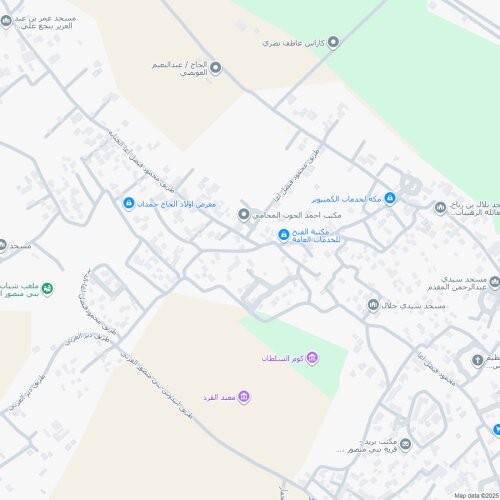Best Child Custody Lawyers in Egypt
Share your needs with us, get contacted by law firms.
Free. Takes 2 min.
Free Guide to Hiring a Family Lawyer
Or refine your search by selecting a city:
List of the best lawyers in Egypt
About Child Custody Law in Egypt
Child custody in Egypt is primarily governed by the rules of Islamic law or Sharia, which play a significant role in family law matters. Custody decisions in Egypt primarily focus on the welfare of the child, though considerations may include which parent is more capable of caring for the child and maintaining their wellbeing. Typically, mothers are favored for custody of young children, especially up to the age of 15, although the legal environment has been shifting with more emphasis on the child's best interests.
Why You May Need a Lawyer
Seeking legal help in child custody matters can be crucial for several reasons. Common situations include:
- Disputes between parents over custody and visitation rights.
- Ensuring fair and legally sound custody arrangements that best serve the child’s interests.
- Navigating the complexities of changing custody arrangements, such as relocation or changes in parental capability.
- Legal representation if matters escalate to court proceedings.
- Understanding and exercising legal rights, especially in cross-cultural or international custody scenarios.
- Protecting the child from situations that may be harmful to their wellbeing.
Local Laws Overview
Key aspects of child custody laws in Egypt include:
- Under Egyptian law, the mother is generally granted custody of children until they reach a certain age -- for boys, age 15, and for girls, until they marry.
- Custody may also be granted to the father or other family members if the mother is deemed unfit.
- Legal frameworks allow for changes in custody arrangements, but these often require legal justification and court approval.
- The courts prioritize the child’s welfare and stability in determining custody arrangements, often consulting social workers or family courts.
- Visitation rights are typically granted to the non-custodial parent, ensuring they maintain a relationship with the child.
Frequently Asked Questions
1. Who typically gets custody of a child in Egypt?
Mothers generally receive custody of young children unless they are deemed unfit. Fathers or other family members may be considered for custody in certain situations.
2. At what age can a child choose which parent to live with?
There is no specific age at which a child can decide; however, the child's opinions might be considered in court, especially if they are over 15 years old.
3. What factors do courts consider when awarding custody?
Court deliberations focus on the child’s best interests, considering factors such as the parent’s ability to care for the child, safety, and emotional connection.
4. Can custody arrangements be changed?
Yes, custody arrangements can be modified through legal proceedings, especially when there is a significant change in circumstances.
5. Are fathers given visitation rights if the mother has custody?
Yes, unless there are compelling reasons to restrict access, fathers typically have visitation rights to maintain relationships with their child.
6. Can a parent relocate with the child?
Relocating a child requires changes in custody agreements and often court approval, particularly if the move significantly impacts the other parent's visitation rights.
7. How does joint custody work in Egypt?
Joint custody arrangements can be made where both parents share responsibilities, though these are less common and require mutual consent and court approval.
8. What happens if the custodial parent is found unfit?
If the custodial parent is deemed unfit, custody could be transferred to the other parent or another guardian entity deemed suitable by the court.
9. How long does it take to resolve custody disputes?
The duration varies greatly depending on the complexity of the case, from several months to over a year, or more if the case is contested.
10. Is there a legal provision for child support in Egypt?
Yes, typically the non-custodial parent may be required to provide child support to contribute to the child’s upbringing.
Additional Resources
For more information and assistance, individuals can reach out to the following resources:
- Ministry of Justice - Egypt: Offers legal information and services related to family law.
- National Council for Childhood and Motherhood: Focuses on protecting children's rights.
- Local Family Courts: Provide guidance and judicial services in custody matters.
- Egyptian Bar Association: Can connect individuals with qualified family law attorneys.
Next Steps
If you require legal assistance in child custody matters, consider the following steps:
- Consult a Family Law Attorney: Seek advice from a professional who specializes in child custody to understand your rights and options.
- Gather Documentation: Prepare all necessary documents, including any court orders, birth certificates, and evidence supporting your case.
- Mediation Services: Consider mediation services to negotiate and resolve disputes amicably with the other parent.
- File a Petition: If necessary, your lawyer can help file a custody petition or modification in the appropriate family court.
Lawzana helps you find the best lawyers and law firms in Egypt through a curated and pre-screened list of qualified legal professionals. Our platform offers rankings and detailed profiles of attorneys and law firms, allowing you to compare based on practice areas, including Child Custody, experience, and client feedback.
Each profile includes a description of the firm's areas of practice, client reviews, team members and partners, year of establishment, spoken languages, office locations, contact information, social media presence, and any published articles or resources. Most firms on our platform speak English and are experienced in both local and international legal matters.
Get a quote from top-rated law firms in Egypt — quickly, securely, and without unnecessary hassle.
Disclaimer:
The information provided on this page is for general informational purposes only and does not constitute legal advice. While we strive to ensure the accuracy and relevance of the content, legal information may change over time, and interpretations of the law can vary. You should always consult with a qualified legal professional for advice specific to your situation.
We disclaim all liability for actions taken or not taken based on the content of this page. If you believe any information is incorrect or outdated, please contact us, and we will review and update it where appropriate.
Browse child custody law firms by city in Egypt
Refine your search by selecting a city.
















